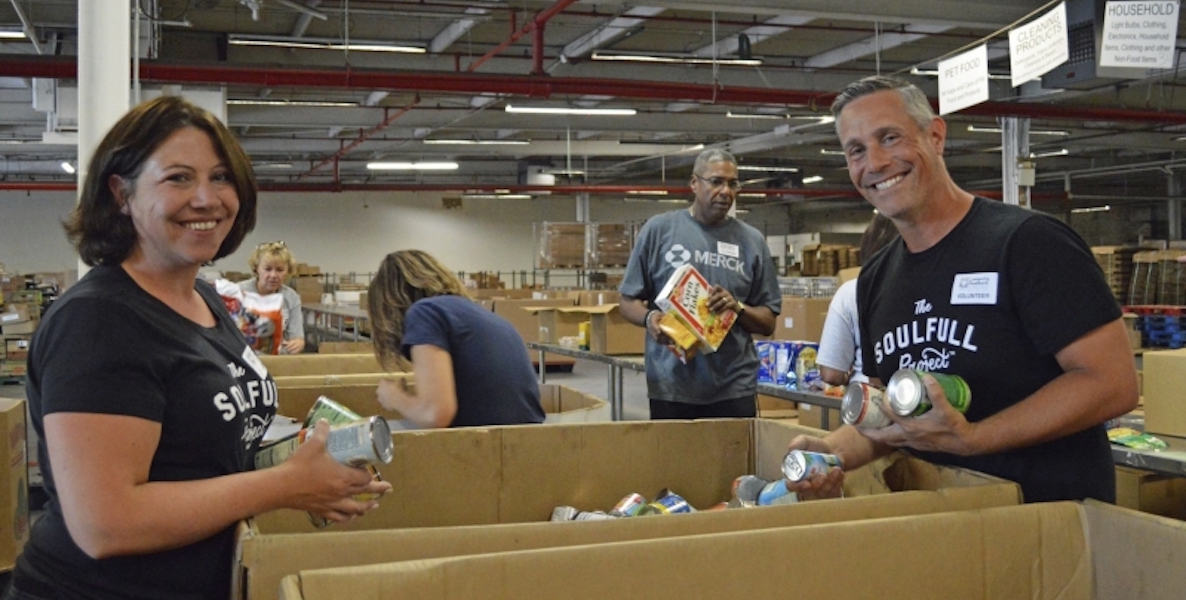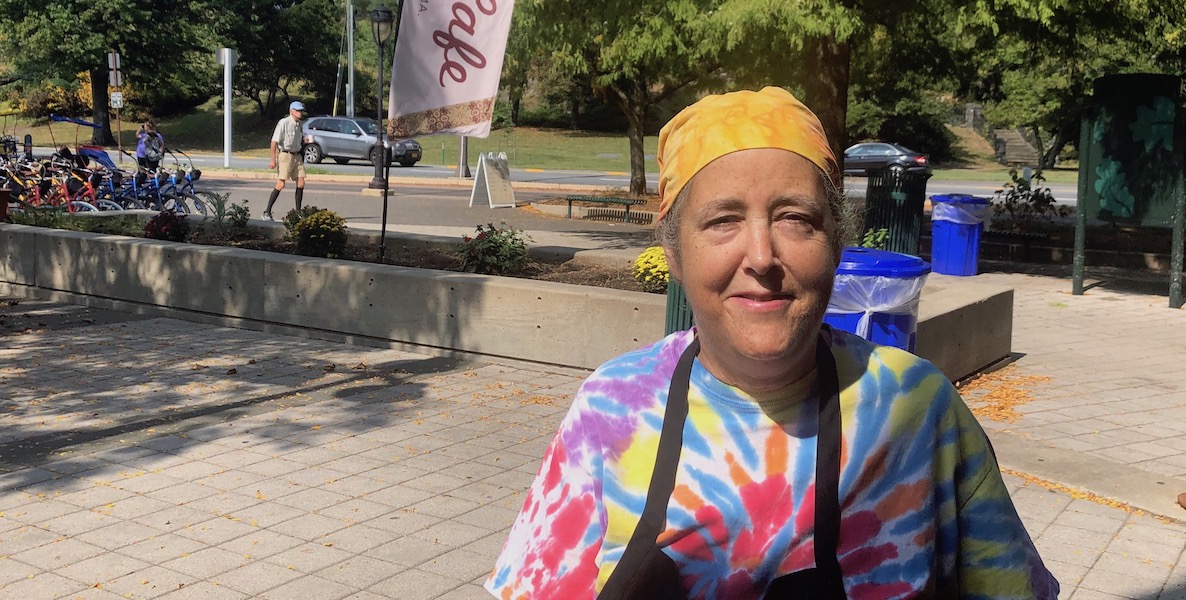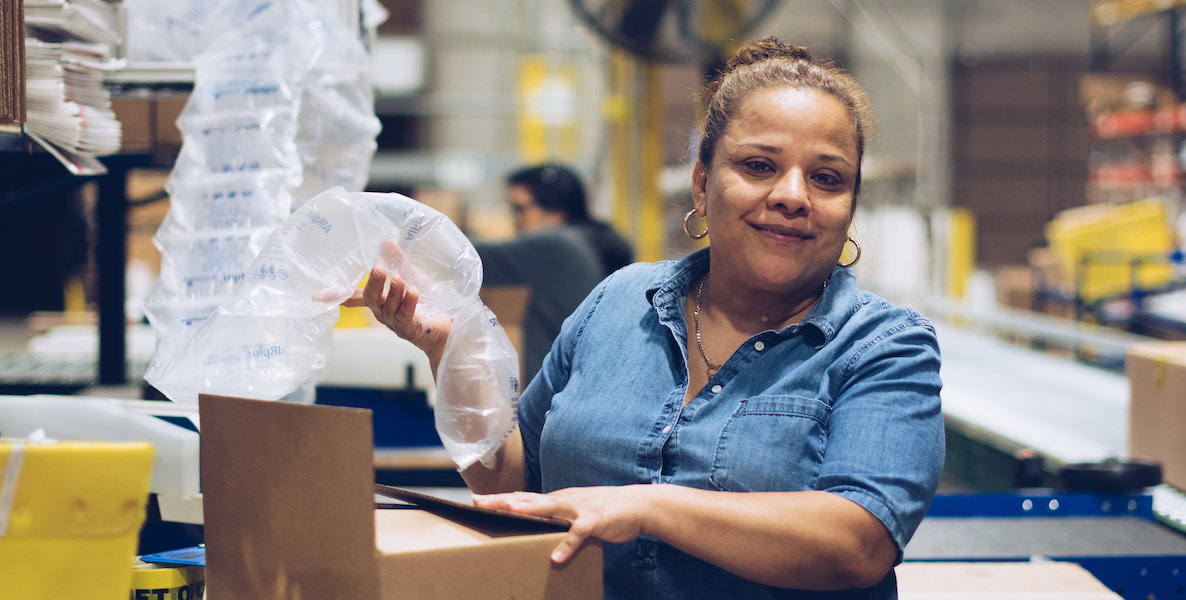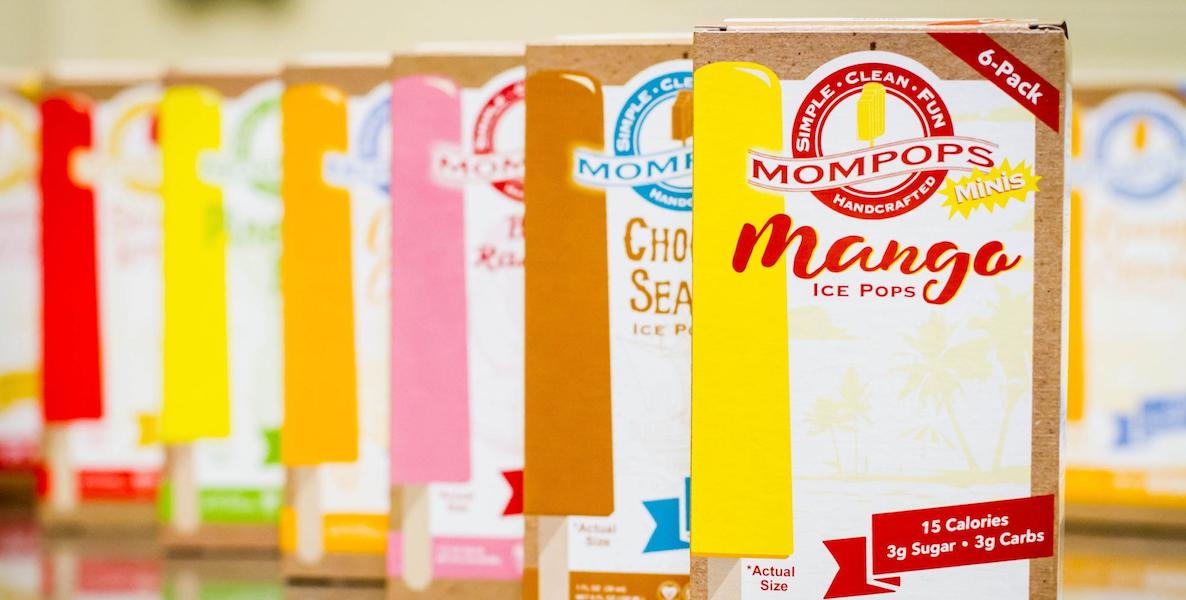If an alien were to land on planet Earth and learn everything it could about the economy by watching Shark Tank, said Martian could be forgiven for assuming that all small business owners need infusions of gazillions of dollars.

In reality, what most small business owners really need—to help them grow, consolidate debt, pivot—is closer to the $10,000 to $100,000 range. But since the 2008 recession, large commercial banks have become increasingly skittish about lending to small businesses; meanwhile the number of community banks in the U.S. has declined from nearly 20,000 to about 6,000 over the last three decades, explains George Cook.
![]() Cook should know: For the last 130 years, six generations of his family have run a community bank, Somerset Trust Company, out of Somerset, PA. Cook saw firsthand that, while financials and performance were important to community banks’ lending decisions, so too were factors like making a good product, opening your store on time, treating your customers well. But with the massive consolidation of the banking industry over the last 20 years, those factors simply don’t come into play with the big banks.
Cook should know: For the last 130 years, six generations of his family have run a community bank, Somerset Trust Company, out of Somerset, PA. Cook saw firsthand that, while financials and performance were important to community banks’ lending decisions, so too were factors like making a good product, opening your store on time, treating your customers well. But with the massive consolidation of the banking industry over the last 20 years, those factors simply don’t come into play with the big banks.
“Underwriting decisions are happening anonymously in New York, or through a black-box algorithm in San Francisco, and you’re no longer capturing all of that really important character-based data on the small business,” Cook says.
“We’re not suggesting you put your entire life savings into your favorite coffee shop, but why not diversify your portfolio a little bit and put some to work in the community where it matters, where you’re going to see the impact of your investment?” Cook says.
The trend has led small business owners to seek alternative sources of capital, from crowdfunding among family and friends to an overreliance on personal credit cards—both of which can have devastating results. “Most people just don’t understand that their favorite coffee shop or restaurant either has a bunch of credit card debt or they’re taking out a merchant cash advance and paying 90 percent interest,” Cook explains.
That’s why, two years ago, Cook and his co-founding parnter, Ken Martin, launched Honeycomb Credit. “We’re trying to step in and help to bring fair lending back to these businesses,” he says one recent January morning from the South Philly outpost of Green Line Cafe.
The way it works is simple:
- Small businesses that have been operating for at least six months and are seeking between $10,000 and $100,000 pay $250 to have a fundraising campaign listed on the Honeycomb platform
- They’re connected to a community manager in their city, who helps create a marketing video to accompany the online campaign
- Investors can donate as little as $100 to the campaign, and will receive monthly payouts plus interest, at a rate of 8 to 13.75 percent.
- Honeycomb receives 6 to 8 percent of the total amount raised.
Honeycomb, as Cook, the company’s CEO, explains it, is a way to engage your community as you grow as a small business, while offering a fair return to the people who are really invested in you and your growth and your success. It’s for businesses that have gone beyond asking for handouts in exchange for swag. And in Philly, where there are nearly 110,000 small businesses, Honeycomb’s potential is huge.
“We’re not suggesting you put your entire life savings into your favorite coffee shop, but why not diversify your portfolio a little bit and put some to work in the community where it matters, where you’re going to see the impact of your investment?” Cook says. “A $100 investment can make a real difference in the life of a small business owner—it doesn’t make a difference in Apple’s bottom line.”
![]() Since launching two years ago, Honeycomb Credit has overseen 40 successfully funded campaigns totaling $1 million of investment, and expanded from Pittsburgh into Detroit and Philly. (They’re not profitable yet, they don’t share projections with the press.)
Since launching two years ago, Honeycomb Credit has overseen 40 successfully funded campaigns totaling $1 million of investment, and expanded from Pittsburgh into Detroit and Philly. (They’re not profitable yet, they don’t share projections with the press.)
About 75 percent of their campaigns have been with food and beverage companies—banks are famously loathe to lend to that niche (which is not surprising given that 60 percent of restaurants don’t survive past one year, and 80 percent close within five).
Take Mompops, the Kennett Square-based creator of allergen-free ice pops in flavors like chocolate sea salt, pineapple basil and strawberry lemonade. Despite its popularity, the company was repeatedly denied funding from banks large and small. Maxing out their personal credit cards, the founders dragged their credit score through the mud, further decreasing the likelihood of securing outside funding. So they turned to Honeycomb, seeking $16,000, raising more than $24,000, and giving investors an 11.5 percent return on their investment.
“What Honeycomb did is provide hope,” says Stephanie Cohen, Mompops’ co-owner. “So many small businesses go out of business because they can’t get working capital. Honeycomb provided a platform that allowed us to stay alive. And before Honeycomb existed, there wasn’t that [opportunity] out there. They applied logic to an industry that is very old-school.”
Philly-based Camino Kombucha Co. also joined the Honeycomb platform; they’re seeking $20,000 and offering an eight-percent interest rate for investors. And Cook, who with his head of community partnerships, Topiltzin Gomez, has been meeting with local entrepreneurs, says more Philly companies are on the horizon (though those deals are confidential until they’re live on the site).
In Philly, access to capital is especially difficult for neighborhood mom-and-pop businesses. They face real barriers to success—whether it’s credit, not having a lot of assets to put up as collateral or longer-term trust issues with large banks. It’s part of the reason why the city has so few African American-owned businesses, and why communities of color, as a result, struggle to become economically sustainable.
“We’re trying to step in and help to bring fair lending back to these businesses,” says Cook.
“Small businesses, especially those in historically underserved communities where there might not be a lot of bank access and financial literacy, face real, systemic challenges to access financing. But there is no shortage in the kind of entrepreneurial spirit and the demand that they have,” says Liam Kelly Fleming, Business Technical Assistance Program Manager for the Department of Commerce’s Office of Neighborhood Economic Development, which runs the Philadelphia Business Lending Network.
![]() PBLN simplifies the process of applying to any of the 40-plus lenders in its network, many of whom also focus on the $10,000 to $100,000 range Honeycomb is addressing. But there is always more need. “Any time we get a new lender who specifically wants to serve neighborhood businesses and recognizes that there is a need there, we’re so happy to welcome them into the lending network and to the city, as a resource for small businesses,” he says.
PBLN simplifies the process of applying to any of the 40-plus lenders in its network, many of whom also focus on the $10,000 to $100,000 range Honeycomb is addressing. But there is always more need. “Any time we get a new lender who specifically wants to serve neighborhood businesses and recognizes that there is a need there, we’re so happy to welcome them into the lending network and to the city, as a resource for small businesses,” he says.
Honeycomb Credit is thoughtfully getting to know our small business ecosystem. Gomez says that in addition to Philadelphia Business Lending Network, Honeycomb has had meaningful conversations with Impact PHL, the Artisan Exchange, Circle of Aunts and Uncles, Esperanza, Shift Capital, PACDC, and more.
“We expanded, and now we’re growing into our shoes,” Cook says. “We want to get our arms around Philadelphia. It’s a big city, we have a lot to learn, and we’re spending 2020 getting the flywheel turning.”
Want more? Read these related articles:









